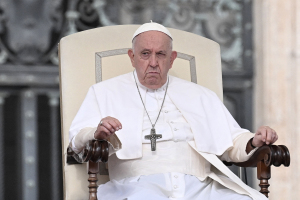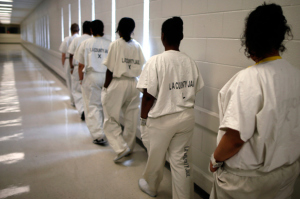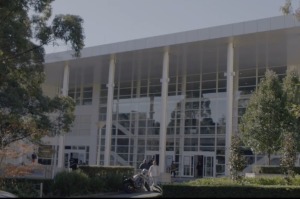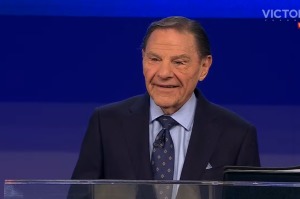Obama, Romney Debate Jobs, Economy, Deficits
In the first presidential debate Wednesday night in Denver, Colo., President Barack Obama argued for another term in office to recover from the deep recession that began four years ago, and that his rival, Republican Mitt Romney, would return the nation to the economic policies that led to the recession. Romney argued that Obama's policies have not been working and worsened the crisis. He also said that Obama's descriptions of his plans were not true.
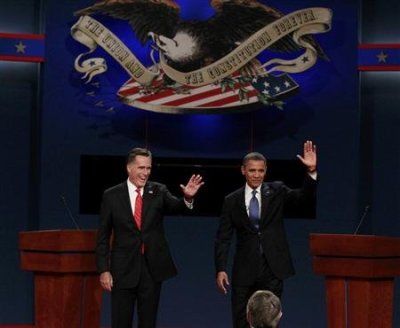
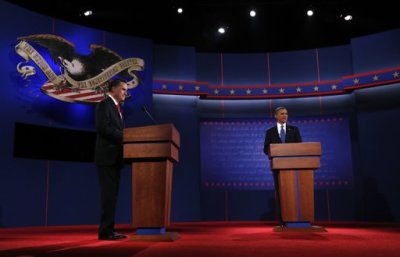
Obama argued that Romney's plan would cut taxes by $5 trillion, mostly for the wealthy, and cut programs that help the middle class.
Romney is making the "same sales pitch made in 2001 and 2003" under President George W. Bush, Obama argued, while "Bill Clinton tried the approach I talked about."
Romney repeatedly argued that Obama was not accurately describing his plan. The "number one principle" in his tax plan, Romney said, was that there would be no tax cut that increases the deficit. He also said that he would not, "under any circumstances," raise taxes on middle income Americans.
Romney noted that he wants to cut rates but also eliminate deductions such that the wealthy would continue to pay the same share of taxes that they pay today.
Obama noted that an independent study came to the conclusion that under Romney's plan, the deductions he would have to eliminate to make the plan work would impact the middle class.
"It's not possible. It's math. It's arithmetic," Obama argued.
Romney countered that "there are all these studies out there," and noted that many came to a different conclusion than the one Obama cited.
On reducing the nation's $16 trillion national debt, Romney said he would favor spending cuts and economic growth. Obama argued in favor of increasing the tax rates on families making more than $250,000 per year to reduce the debt and make investments necessary for economic growth.
Both candidates argued in favor of reducing the complexity in the tax code and reducing the corporate tax rate. There was some debate, though, about particular tax deductions and credits for businesses.
Obama emphasized doing away with deductions that "ship jobs overseas." Romney critiqued tax favors to wind and solar energy companies.
"You don't just pick the winners and losers, you pick the losers," Romney quipped in a reference to the failed solar power company Solyndra.
On the issue of reducing the growth of Social Security and Medicare, Obama spoke about his grandmother and how the programs helped her remain independent in her old age.
"These are people that have worked hard," Obama said in a veiled reference to Romney's "47 percent" gaffe.
Most of the discussion on Medicare revolved around Romney's plan to allow future beneficiaries to buy health insurance on the private market with a voucher from the federal government. Romney emphasized that his plan would give people choices while Obama warned that the plan would put "seniors at the mercy" of those private companies.
On regulation, Obama said, Romney's policies would return the nation to the problems that led to the economic crisis in the first place.
"Does anybody think the problem was that we had too much regulation?" Obama asked rhetorically.
As he did on the tax issue, Romney argued that Obama did not understand his position.
"That's just not the facts," Romney countered, "we have to have regulation on Wall Street."
The problem, Romney argued, was that Obama implemented the wrong type of regulations, and they hurt small banks and helped big banks.
"We don't need five banks that are too big to fail," Romney said.
Romney also argued in favor of getting rid of the Affordable Care Act, which both candidates referred to as "Obamacare." The health reform measure cut Medicare, led to higher costs for families and made businesses less likely to hire new workers, Romney claimed.
"The irony is, we've seen this model work well in Massachusetts," Obama countered, referencing the fact that "Obamacare" was modeled after a plan that Romney helped pass as governor of Massachusetts.
In their closing remarks, both candidates emphasized how they would help the middle class.
When first elected, Obama said, he "promised that I'd fight every single day on behalf of the American people, the middle class, and all those who are striving to get in the middle class. I've kept that promise and if you'll vote for me, I promise I'll fight just as hard in the second term."
"If the president is reelected," Romney said "you'll continue to see a middle class squeeze, with incomes going down and prices going up. I'll get incomes going up again."
The next debate will be between the vice presidential candidates, Joe Biden and Paul Ryan, on Oct. 11 in Danville, Ky.

















